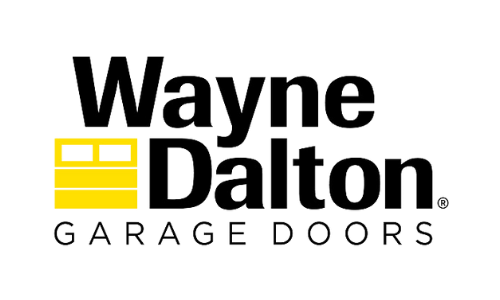DIY Garage Door Repair: Is It Safe?
How Safe Is It to Repair Your Own Garage Door?
Every homeowner has searched online for the answer to the question “DIY garage door repair: is it safe?” at some point. The short answer to this query is “no” however a more nuanced look the question could rate a “it depends.”
The reality is that a home’s garage door will malfunction or break down during your homeownership, but the question is how to deal with it. Whether the door started making an odd sound or it just won’t open anymore, the options are small in number: call a garage door professional or attempt the DIY route and do it yourself.
Many homeowners attempt the repairs themselves to save money or the time of having to wait for a repair professional to come out to their home, but this may not be the best thing to do. DIY garage door repair can be dangerous and may end up costing you more money (and damage) in the end than if you had called a professional to begin with.
Here are some reasons why you may want to hesitate on doing the fix yourself and some simple repairs you can do and a few maintenance ideas to implement to prevent your garage door from malfunctioning sooner than it should.
PRO TIP: Learn more by contacting Aquarius Door Service today!
Do Not Make Major Repairs
Garage doors are complex and heavy systems, often requiring specialized tools and elements. Weighing in at 500 pounds, garage doors leave precious little room for error, if any. Having less than a professional’s knowledge of garage doors could lead to further property damage or you may be injured in the process of the repair. In extreme cases, accidents involving garage doors can be fatal.
That being said, it is advisable to avoid making any of the following major repairs to your garage door yourself.
- Re-attaching the garage door: garage doors come off their tracks for many reasons and while it may seem a simple thing to get the rollers back in place, a professional will be able to identify why it happened and prevent it from recurring.
- Malfunctioning garage door opener: garage door openers are much more complex than we realize. Attempting to troubleshoot them ourselves may void the warranty and fail to fix the problem or create a new one.
- Replacing torsion springs: these large springs are what helps to open and close the garage door. Due to the weight of the door, these torsion springs are under incredible tension. If the spring should release or break, they can cause enormous damage to home, car, and body.
- Replacing any moving parts (cables, rollers, etc.): most garage doors are built with components that require specific tools that many homeowners will not have. Installing these complicated pieces should be done by a garage door professional only.
- Any issue you do not feel comfortable with: the fact is we live in a time where we can find videos online to help us fix anything with step-by-step instructions. If you are having an issue with your garage door that you do not feel comfortable handling yourself, do not press the issue. No amount of DIY videos or instructional clips can take the place of making the decision that is right for you as the homeowner.
PRO TIP: What Are the Most Popular Garage Door Brands on the Market Today? Explore our comprehensive guide for top-rated options and make an informed decision for your home. Check out our guide now.
Risking life, limb, and additional damage to your property is not worth the money that you feel you could save when doing the large fixes yourself. Calling a garage door professional is always the safest route when it comes to large major repair issues.
Minor DIY Items and Maintenance
Major garage door malfunctions aside, there are a few things homeowners can do themselves as well as continue to do on a regular basis to keep your garage door in working order.
- Maintaining the safety sensors: this may be one of the easiest, yet most overlooked, pieces of garage door maintenance. If your garage door won’t open or close, we know to look to see if something has fallen in front of the sensor, but did you know that keeping the safety sensor clean is also important? Make it a frequent practice to keep the sensors clear of dirt, cobwebs, and moisture as well as ensuring the screws are tightened to keep them in place. If your garage door still won’t close, check to see if the sensors are lined up appropriately.
- Lubricating the garage door: once every six months, using a silicone spray, lubricate the moving parts of your garage door. Taking the time to do this also allows you to inspect the door and catch any issues that may arise. Silicone spray can be found at most hardware and home improvement stores.
- Tightening hardware: while lubricating the garage door, take a few moments to tighten any loose nuts, bolts, and hinges that have come loose. The stress and shaking of the door opening and closing can cause these items to come loose over time. Please note: if you live in an area of extreme temperatures, remember that your hardware can contract and expand throughout the year.
Creating and following a maintenance schedule for your garage door will not only prolong its life, but it will also make you aware of any problems that could be on the horizon.
Pro Tip: Regularly inspect your garage door for issues like Garage Door Torsion Spring Repair, Sagging Garage Door Repair, Garage Door Opener Repair, Garage Door Panel Repair, and Track Alignment & Repair to prevent costly damage. Timely repairs ensure smooth, safe operation and extend the life of your door.
CONCLUSION: DIY Garage Door Repair: Is It Safe?
When we have serious issues with our cars, HVAC systems, or electrical panels, we don’t hesitate to call a professional. Major garage door repair should be no different. Homeowners should refrain from making any major repairs to their garage doors. Issues with the opener or the door coming off the tracks may seem like simple fixes but they can cause more harm and damage if not dealt with by a professional.
Back to the original question – is it safe to make fixes yourself?
For most repairs the answer is “no,” but homeowners can take an active role in the health of their garage door by maintaining it regularly. Only the homeowner can decide the conundrum of “DIY Garage Door Repair: Is It Safe?”.















